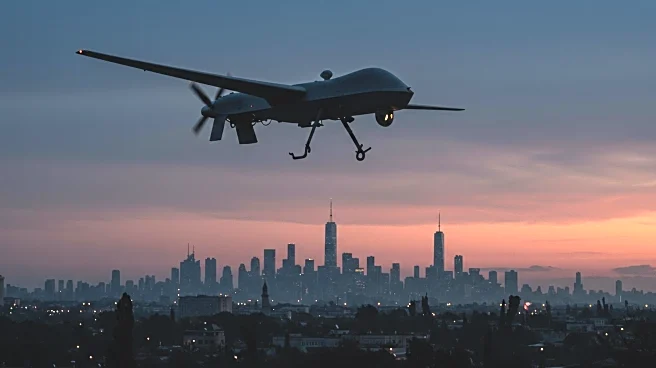What's Happening?
Israeli officials have announced plans to launch a military offensive to take over Gaza City, a stronghold for Hamas. The operation involves encircling the city, allowing civilians to move south through checkpoints, and then advancing with force. Approximately 60,000 reservists will be called to support the troops, with an additional 20,000 having their orders extended. This military buildup comes as Prime Minister Benjamin Netanyahu considers a cease-fire proposal from Hamas, which includes the release of hostages. The situation remains tense, with the potential for significant displacement and humanitarian impact.
Why It's Important?
The planned offensive in Gaza City could escalate the ongoing conflict between Israel and Hamas, leading to increased violence and instability in the region. The operation may result in significant civilian displacement, raising humanitarian concerns and potentially drawing international scrutiny. The decision to proceed with military action reflects Israel's strategic priorities and its approach to dealing with Hamas. The situation underscores the challenges of achieving peace and stability in the region, with implications for regional security and international relations.
What's Next?
As Israel prepares for the offensive, the international community will likely monitor the situation closely, with potential diplomatic efforts to prevent further escalation. Humanitarian organizations may need to respond to the displacement and provide support to affected civilians. The outcome of the cease-fire proposal and the military operation could influence future negotiations and the broader geopolitical dynamics in the Middle East.










